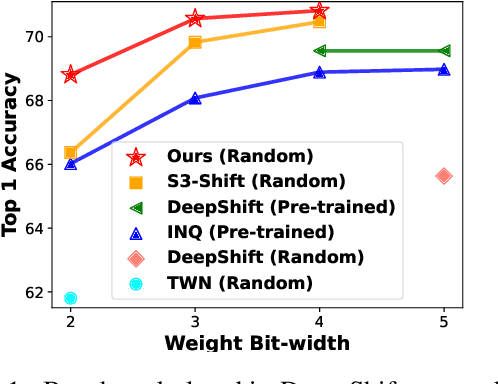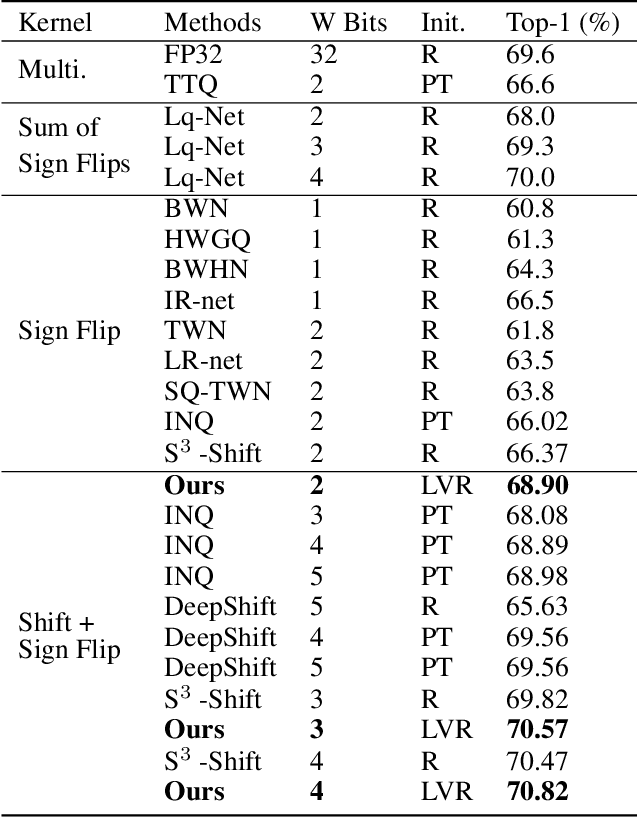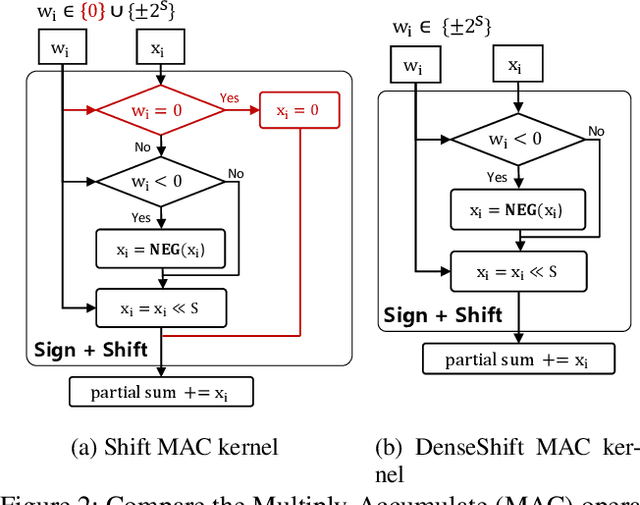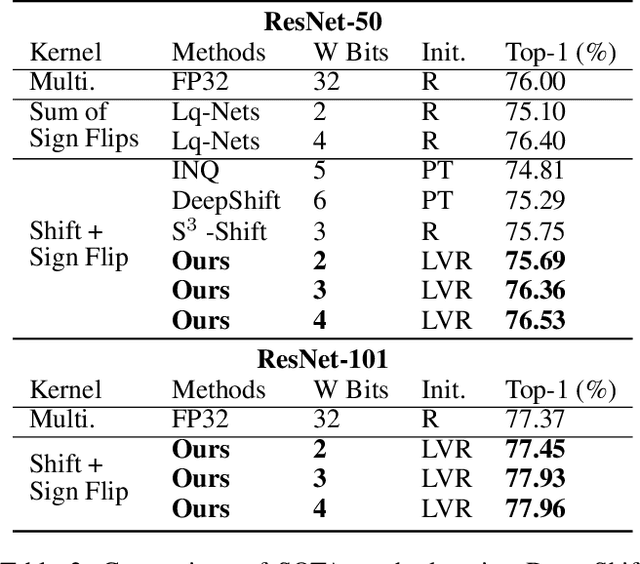DenseShift: Towards Accurate and Transferable Low-Bit Shift Network
Paper and Code
Aug 20, 2022



Deploying deep neural networks on low-resource edge devices is challenging due to their ever-increasing resource requirements. Recent investigations propose multiplication-free neural networks to reduce computation and memory consumption. Shift neural network is one of the most effective tools towards these reductions. However, existing low-bit shift networks are not as accurate as their full precision counterparts and cannot efficiently transfer to a wide range of tasks due to their inherent design flaws. We propose DenseShift network that exploits the following novel designs. First, we demonstrate that the zero-weight values in low-bit shift networks are neither useful to the model capacity nor simplify the model inference. Therefore, we propose to use a zero-free shifting mechanism to simplify inference while increasing the model capacity. Second, we design a new metric to measure the weight freezing issue in training low-bit shift networks, and propose a sign-scale decomposition to improve the training efficiency. Third, we propose the low-variance random initialization strategy to improve the model's performance in transfer learning scenarios. We run extensive experiments on various computer vision and speech tasks. The experimental results show that DenseShift network significantly outperforms existing low-bit multiplication-free networks and can achieve competitive performance to the full-precision counterpart. It also exhibits strong transfer learning performance with no drop in accuracy.
 Add to Chrome
Add to Chrome Add to Firefox
Add to Firefox Add to Edge
Add to Edge